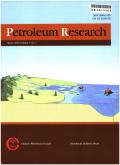用机器学习方法模拟和预测鼠李糖脂生物表面活性剂稳定的原油纳米乳的界面张力和流变性
IF 4
Q1 Earth and Planetary Sciences
引用次数: 0
摘要
预测纳米乳液的性质,而不进行昂贵和耗时的实验研究,可以在多个应用中产生显著的好处。本研究考察了机器学习精确预测鼠李糖脂生物表面活性剂稳定的原油-水纳米乳的界面张力和粘度的能力。建立了四种人工神经网络模型,并对不同浓度原油和生物表面活性剂组成的纳米乳液进行了评估。人工神经网络模型的性能评价表明,均方误差小于2.26E-03,决定系数大于0.999,预测精度较高。所有模型的平均总体偏差确定为0.004%左右,表明与实验结果的偏差可以忽略不计。研究结果表明,所建立的人工神经网络模型可以准确、可靠地预测界面张力和粘度值,为实验方法提供了一种有效的替代方法,在优化工业用途的纳米乳液配方方面具有潜在的应用前景。本文章由计算机程序翻译,如有差异,请以英文原文为准。
Machine learning approach for modelling and predicting interfacial tension and rheology of crude oil nanoemulsions stabilized by rhamnolipid biosurfactant
Forecasting the properties of nanoemulsions without engaging in expensive and time-consuming experimental research can yield significant benefits across multiple applications. This study examines the capability of machine learning to precisely forecast the interfacial tension and viscosity of crude oil-water nanoemulsions stabilized by rhamnolipid biosurfactant. Four artificial neural network models were created and assessed for nanoemulsions composed of different concentrations of crude oil and biosurfactants. The performance evaluation of the artificial neural network models demonstrated mean squared error values below 2.26E-03 and coefficients of determination greater than 0.999, signifying exceptional predictive accuracy. The mean overall deviation for all models was determined to be around 0.004%, indicating a negligible divergence from experimental results. The findings indicate that the developed artificial neural network models can accurately and reliably predict interfacial tension and viscosity values, providing an efficient alternative to experimental methods, with potential applications in optimizing nanoemulsion formulations for industrial purposes.
求助全文
通过发布文献求助,成功后即可免费获取论文全文。
去求助
来源期刊

Petroleum Research
Earth and Planetary Sciences-Geology
CiteScore
7.10
自引率
0.00%
发文量
90
审稿时长
35 weeks
 求助内容:
求助内容: 应助结果提醒方式:
应助结果提醒方式:


